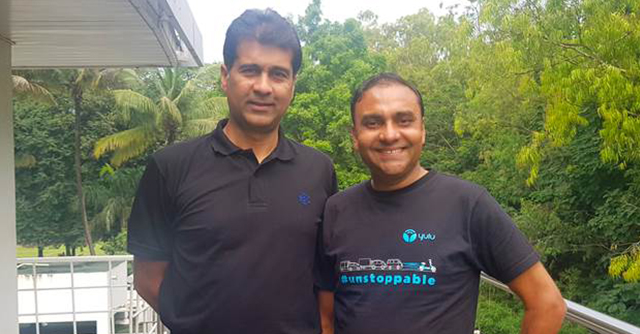
Bajaj Auto leads Series A round in micro-mobility startup Yulu


Shared micro-mobility startup Yulu Bikes raised $9.5 million in a Series A round led by Bajaj Auto, the country’s second largest two-wheeler maker. The strategic investment will enable the Bengaluru-based startup to better leverage Bajaj’s manufacturing operations and allow it to explore vehicle financing arrangements for its fleet.
Some of Yulu’s existing investors also participated in the round, contributing $1.5 million, founder and CEO Amit Gupta told TechCircle. The Series A capital will enable the company to expand to more cities and add to its fleet, he said while declining to disclose the identities of the returning investors.
In March last year, the startup raised $7 million in a seed round from Mumbai-based venture capital firm Blume Ventures, Flipkart co-founder Binny Bansal, Naveen Tewari, founder and CEO of InMobi, and Girish Mathrubootham, founder and CEO of Freshworks.

The latest infusion takes the total equity capital raised so far by the Bengaluru-based startup to $16.5 million.
Founded in 2017, by Gupta, RK Misra, Naveen Dachuri and Hemant Gupta, Yulu offers bicycles and electric scooters with a maximum speed of 25 kilometers per hour, which do not need any driving license and vehicle registrations to ride. This delivers first mile and last mile connectivity to commuters in large Indian cities. It deploys machine learning and artificial intelligence capabilities to predict the demand and supply of its assets and resources to ensure vehicle availability and operational efficiency. Users can unlock the ebikes by scanning QR codes on their devices.
Prior to Yulu, Gupta co-founded advertising technology firm InMobi. He spent more than a decade to help build India’s first unicorn before stepping down from his executive role in 2017.

Following the Bajaj-led capital infusion, the startup will further enhance the technology stack and expand the network of its battery-swapping stations across cities. It partners with mom-and-pop stores around its parking zones to set up cloud stations or refrigerator-sized charging boxes.
Gupta said Yulu would not do away with bicycles, but would optimise its usage according to use cases. For instance, bicycles are in demand for short distances rides of about 1-1.5 kilometers (in technology parks) and EVs are preferred for long rides of 4-5 kilometers.
Prior to the investment by Bajaj, Yulu had a live partnership with the two-wheeler marker for the last six months. Bajaj was assembling electric scooters for Yulu while the components were primarily imported from China. With the strategic investment, Bajaj will manufacture the vehicle in India. It would still import certain components from China, but would take up the ownership of the product, including building OEM partnerships, Gupta said.

“Bajaj will also consider facilitating the vehicle finance needs of Yulu for large scale deployment of its micro-mobility electric vehicles,” the company added in a statement.
“We believe that the two factors of congestion reduction and pollution control will drive the segment of shared micro-mobility in the future. That coupled with the expansion of mass rapid transport systems in large cities will further boost the demand for flexible last-mile connectivity,” Bajaj Auto managing director Rajiv Bajaj said.
In June, Yulu partnered with ride-hailing unicorn Uber to offer e-bikes to users on a pilot basis in Bengaluru. When asked if the pilot would lead to a strategic partnership between the two companies, including an equity investment from Uber, Gupta said, “Uber partnership was a pilot for both companies to understand each other. The pilot is still live, technically. They have generated a lot of data, which they needed to take a decision. There’s an internal memo that Uber India team is preparing now, the headquarters is also involved and a decision making should happen soon. The way Bajaj came together with a skin in the game, I think if Uber wants to work with Yulu, it (an equity investment) is a possibility at this stage.”

